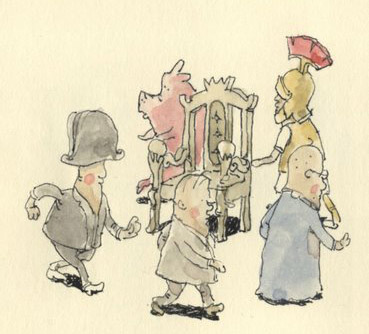How improving productivity always reliably made thing cheaper and easier to do, is ending. It naturally ends as any direction of progress does, if taken to its limit. Now we see our “productivities” coming into costly conflict with each other and the environment, making everything more costly and complicated, the exact opposite of what we expect.
It reverses an expectation humans have had for how to solve problems that appears to be much older than recorded history, as all of human evolution is a record of great leaps of increasing productivity, using less to get more. Becoming productive in cooperating with our environment rather than conquering it, no longer “productive”, is a very big change in thinking for us.

Continuing our old model of “productivity” would make economies completely unworkable, so very costly to operate that they would become unprofitable, and have to cease working. We’re seeing a large scale version of how many ancient skilled “problem solving” societies of the past created problems for themselves they couldn’t solve and environments that would no longer support them.
Even “downsizing” is hazardous, as economies develop by accumulative design (growth) and so “the new” frequently relies structurally on not changing the old. A growth system’s design becomes a barrier to its own radical reorganization, causing decline to result in shedding whole formerly integrated sectors at a time, and so “growing together” but slimming down by “breaking apart”, growth as “lifting all boats” to become “musical chairs” as the natural response to pushing the limits. Gail Tverberg’sWhere do continued high oil prices lead us? drills down nicely into the why avoiding this dilemma is likely to fail given our present way of “solving” the energy crisis by making it constantly worse.
That using productivity to grow the economy would at a point rapidly reverse it’s value to the economy, has been clearly visible approaching for more than a century now. It can also help us turn our attention to the right subjects. #1 Sustainability Issue Today… How to read the evidence and respond societally is discussed in: A decisive moment for Investing in Sustainability
For philosophers, it points to a fascinating case of a Type III error, trusting the wrong model and accepting the wrong questions it keeps giving us. We have been treating nature as the models we make from the information we collect. We haven’t been watching, for changes in how the systems of our environment naturally work by themselves. So it has left us “in the dark” just because natural systems that work by themselves also change by themselves, not reporting to us how.
